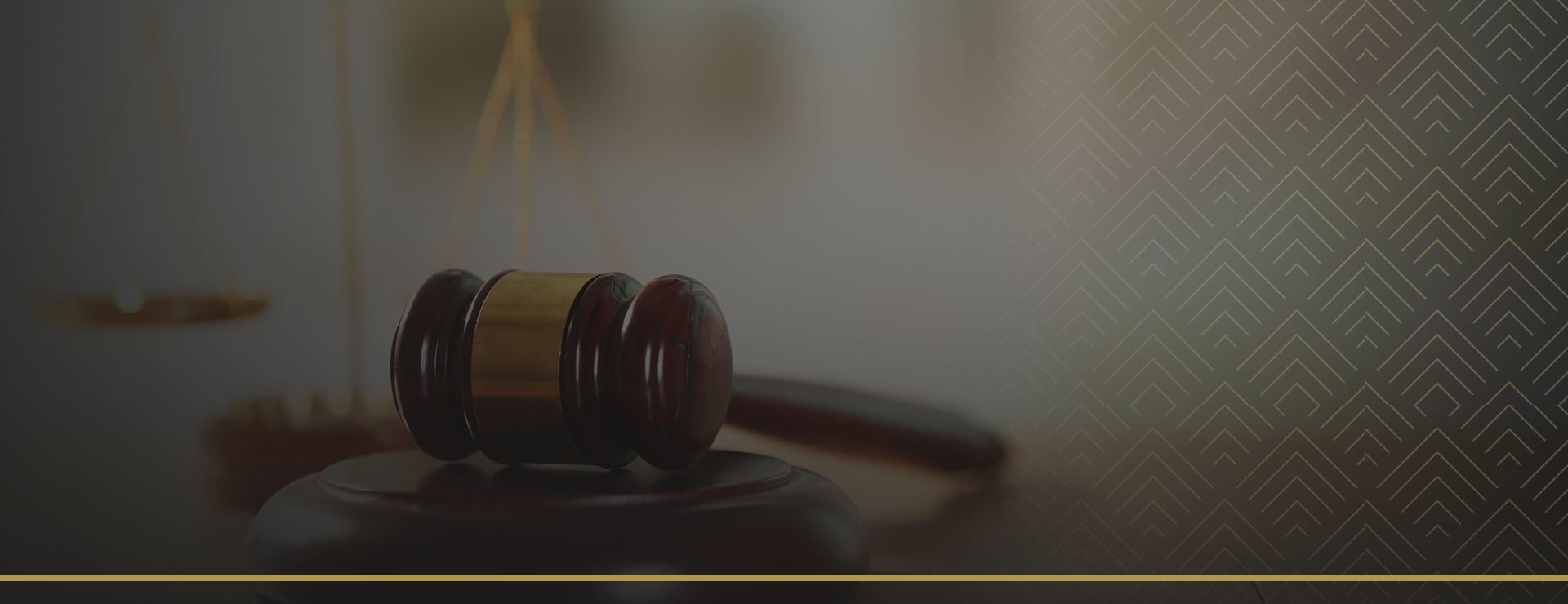
Whether you need criminal defense or representation for a personal injury claim, our team, lead by Chris Crawford, will fight 24/7 to guarantee that your rights are protected. These trial results should inspire confidence.



Pensacola Hurricane Damage Lawyer
Recovering Damages from Insurance Companies for Hurricane Victims
Living in Florida is a wonderful experience, with our beautiful beaches and year-round sunshine. But unfortunately, the state is also notorious for the often-brutal hurricane seasons that can wreak havoc on properties and leave families struggling to recover.
If your home or business has been damaged by a hurricane, you may be entitled to compensation from your insurance company. However, recovering these funds can be difficult without the help of an experienced attorney who knows how to navigate the complex legal process.
At Crawford Law, our team of experienced attorneys has extensive knowledge of the law and what you are entitled to when it comes to hurricane damage claims. We understand that this is a stressful time for you and your family, but we are here to help you get back on track as quickly as possible.
Our attorneys will fight for fair compensation for your losses. We have a long history of success in hurricane damage cases and will handle your case with skill and compassion.
If you are looking for an experienced Pensacola hurricane damage lawyer, please don't hesitate to call (850) 220-2098 or complete our convenient online form to schedule a consultation. Let us put our expertise on your side and help you get the justice you deserve.
The Severity of Hurricane Damage in Florida
Hurricanes can cause extreme destruction to properties throughout the Florida area. Wind, rain, and flooding can all result in significant damage that must be addressed quickly and correctly in order to mitigate further losses. Damage from hurricanes can range from minor cosmetic issues, such as broken windows, water stains on walls, or missing shingles, to major damage, including structural damage. Hurricane victims need to understand exactly what damages their insurance may cover so they can make an informed decision when filing a claim.
The types of damage covered by insurance include:
- Structural damage caused by wind
- Flooding due to storm surge
- Water stains on walls
- Broken windows
- Missing shingles/roof tiles
- Damage to furniture
If your property has been damaged following a hurricane, the first step is to document everything by taking pictures and recording the time that you noticed the damage. It is essential to take pictures of the house’s roof, exterior, windows, doors, and anything else that was damaged due to the windstorm. Afterward, you’ll want to review your policy and contact your insurance agency to start the claim process.
What if My Insurance Company Denies My Hurricane Claim?
Insurance companies are supposed to be there for us when we suffer damage due to a hurricane; however, it is not uncommon that they deny claims. It can be very frustrating and overwhelming if your insurance company denies your hurricane claim, as you may feel powerless in the situation — but don't lose hope! There are several steps you can take to help recover what you have lost due to the hurricane.
Here are some steps you can take if you've been denied:
- Contact an experienced attorney who specializes in hurricane damage cases
- Review your policy carefully and make sure all the necessary paperwork was submitted correctly, with all applicable evidence included
- Obtain independent reviews from qualified professionals about any damage or destruction caused by the storm that affects the structural integrity and safety standards on your property or business location(s)
- Submit additional supporting documentation regarding losses that occurred during a hurricane incident, such as proof-of-value receipts, repair estimates/costs, supplemental photos, etc.
- Reopen negotiations with your insurance provider through legal action, if needed (with assistance from an experienced lawyer)
Frequently Asked Questions About Hurricane Claims
What Does the Adjuster Do? How Does My Insurer Decide if My Claim Will Be Covered?
The adjuster’s job is to review your policy, the estimate of damages, and any kind of evidence that’s brought forth from the investigation of a claim. Once they have received all the information, the adjuster will look through it and provide a decision on what they feel should be repaired. It’s opinion-based. The insurance adjuster bases their opinion on the estimate given to them by whoever did the inspection on their behalf.
A lot of times, the insurance adjuster will only do visual inspections. They don’t get to the actual problem unless they can see it with their own eyes, meaning that water damage behind walls, under floors, or hidden in your attic will not be accounted for. They look at the surface — we look at what caused the problem. There are a few different things that the insurance adjuster will look at compared to a public adjuster or an engineer.
What Is the Difference Between Actual Cost Valuation (ACV) Versus Replacement Cost Valuation (RCV)?
Replacement cost valuation (RCV) is the value that is going to be written in the estimate. It’s the actual cost, without the depreciation of certain items. If you have a home that needs repairs, you are not going to get the full value due to wear and tear after you take out the depreciation of the roof and certain issues that are covered in the claim. For instance, if you have a 15-year-old home with an RCV of $140,000 to replace everything that needs repair, they are going to apply a percentage of 15%. In other words, they will deduct 15% from your RCV to get the actual cost value. Your actual cost value will be what the insurance companies base your claim on.
My Insurance Company Keeps Reducing What They’re Going to Pay by Depreciating Items in My Claim. What Can I Do?
If your insurance company keeps reducing payments by depreciating your claim, you should contact a loss consultant. The loss consultant can put a presentation together to explain what is depreciated. At some point, it will become an investigation of who was right and who was wrong. But insurance companies will routinely depreciate repairs down to nothing to avoid paying the full cost. A good attorney and loss consultant can find the faults or scheme that the insurance companies will use in trying to overly depreciate repairs.
Are There Good & Bad Insurance Companies?
Insurance companies are looking to make profits. They pay as little as possible to homeowners for replacements and repairs. Insurance companies primarily look out for themselves. They’re not looking out for the homeowners. They’re looking out for their investors and profit margins while paying as little as possible. Are some insurance companies worse than others? Generally, the answer is yes — but that does not mean that they all will not use the same tactics to minimize how much they have to pay for a reported claim.
What Are Some Common Tactics & Reasons Insurance Companies Use to Delay, Minimize, or Avoid Paying Out on Hurricane Damage Claims?
Insurance companies will deny a claim on the basis of an estimate that does not meet the client’s deductible. They like to say, “Well, your damage number reached the deductible, so we’re going to deny your claim, since you’re not going to have enough damage to actually pursue a claim.” That’s their biggest tactic. They also like to jumble adjusters. They’ll send an adjuster to take pictures to start the claim process, then lose that adjuster and start the process over with another adjuster. By that time, they’re employing a stalling tactic. Instead of getting all the information, they send their adjusters to do multiple claims and put you on the backburner. Their process is not to get you out as fast as they can — their job is to get your number so they can figure out how to avoid paying what you’re actually owed on your claim.
My Insurer Is Requesting an Examination Under Oath. Must I Agree to Give One?
If your insurer is requesting an examination under oath, you must comply. The examination under oath goes with the general duty that you have to cooperate with the insurance investigation in regard to the damages that you’re claiming. The examination under oath is a lot like a deposition. It doesn’t have the formality of a deposition, but it requires testimony that is given under oath. The number one rule is to be honest. If you don’t know the answer to a question, it’s perfectly fine to say that you don’t know. It’s very important to contact a lawyer or a loss consultant before the insurance company requests the examination under oath. We know what they’re going to ask you. We can go over your responses, but at the end of the day, it must be truthful.
Can My Insurance Company Withhold Money from Me Because I Have Not Agreed to Settle Out of the Entire Claim?
Your insurance company cannot withhold insurance money from you just because you have not agreed to settle the insurance claim. In many cases, they will send a check that you never agreed to or asked for in the hope that you will not request additional money. After the initial adjuster from the insurance company does a simple visual estimate of the damage, they’ll calculate an estimate and mail you a check. Their hope is that you take that check and go away.
Can an Insurance Company Deny My Insurance Claim Without Any Sort of Investigation?
Legally, an insurance company should not deny a claim without some sort of investigation. They have a duty to operate in good faith to their insured policyholder. Are they going to do a full investigation? No. Are they going to look like they’re doing an investigation? Yes. That’s the big difference between an insurance company’s adjuster and hiring your own adjuster. The insurance adjuster is only going to look at what you tell them to or what they can visually see. They’re not going to look into any other damage in the home.
If My Insurance Company Denies My Insurance Claim, What Must it Provide Me When Denying?
If your insurance company denies your claim, they will provide a written statement denying your claim. They routinely do not provide the reason why a claim was denied. However, they must provide a written statement stating the denial.
What Are the Most Common Problems We’ll Have with Insurance Companies After a Hurricane Damage Loss?
One of the most common problems with insurance companies after a hurricane are delays. There are not enough adjusters to fulfill all the claims at one time for the insurance companies. Time wise, they’ll be spread out over a month before they can come out to do inspections. When they do have an adjuster come out, most of the time, their only specialty is in a certain field. You may have a roof adjuster come over that knows everything about roofs but doesn’t know anything about wind or moisture damage. Another problem that occurs is an underestimation of damage to a house. Instead of doing any tests for moisture readings or any other kind of exclusive damage testing, they will just look at the visual damage.
Get an Accomplished Pensacola Hurricane Damage Lawyer on Your Case Today
If you file an insurance claim, you may realize that insurance companies prioritize their own interests, which can involve disputing or rejecting your disaster recovery claim. Contact Crawford Law for help with getting the compensation you are entitled to for the damage you experienced.
Our experienced team is on your side and has extensive knowledge of the law and what you're entitled to. We won’t rest until you have received the full amount of compensation for hurricane damage that you are owed.
Reach out to Crawford Law at (850) 220-2098 to schedule an appointment to discuss your claim.
Our Settlements & Verdicts
Recent Case Victories
-
$800,000 Townhouse Community - Hurricane Irma Claim
-
$4,000,000 JR - Trial Verdict Slip and Fall Injury
-
$350,000 JR - Commercial Truck Crash
.2408160418590.png)
.2405170732550.png)
.2405170729550.png)
.2401261044550.jpg)
.2401261040550.jpg)
.2401100539550.jpg)